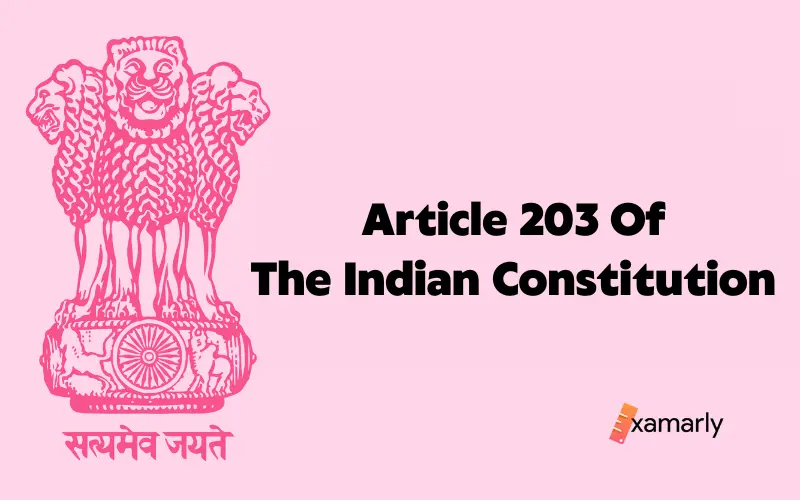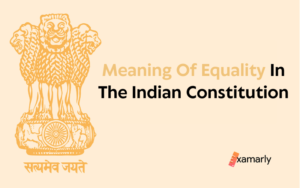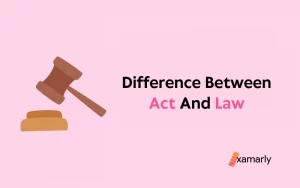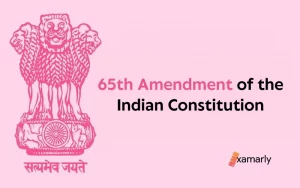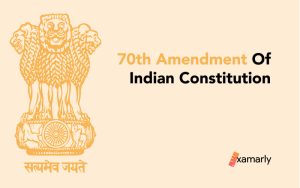An Outline
What powers and provisions, does Article 203 of the Indian Constitution accord the Legislative Assembly as well as the Governor while presenting the estimates of expenditure?
Article 203 of the Indian Constitution sheds light on the procedures followed in the Legislature with respect to estimates presented by the State in the form of “Annual Financial Statement” or “Budget”.
Let’s dive in for a comprehensive understanding of Article 203.
Article 203 Of The Indian Constitution – In Detail
How are the yearly budgets of the States passed in the Legislature? A closer look at the clauses of Article 203 of the Indian Constitution can explain.
Clause 1 – As it is & Explained
(1) So much of the estimates as relates to expenditure charged upon the Consolidated Fund of a State shall not be submitted to the vote of the Legislative Assembly, but nothing in this clause shall be construed as preventing the discussion in the Legislature of any of those estimates.
The first clause of Article 203 of the Indian Constitution states that the estimates of expenditure of the State for one Financial Year, that is to be paid out of the Consolidated Fund, can’t be voted upon by the Legislative Assembly.
However, this does not restrain the Legislative Assembly to discuss the said estimates. The House has the power to ask the Government to explain and justify the estimates of expenditures presented before them.
Clause 2 – As it is & Explained
(2) So much of the said estimates as relates to other expenditure shall be submitted in the form of demands for grants to the Legislative Assembly, and the Legislative Assembly shall have power to assent, or to refuse to assent, to any demand, or to assent to any demand subject to a reduction of the amount specified therein.
In the second clause of Article 203 of the Indian Constitution, we get a detailed account of the power of the Legislative Assembly in case the State submits any other additional expenditure. These estimates are to be submitted in the form of “demands for grants” and will be then presented for voting in the Legislative Assembly.
This clause gives the Legislative Assembly the power to consent or refuse to give their approval to any of the demands raised by the State.
The Legislative Assembly also has the authority to assent to a demand only with the proviso that the Government agrees to reduce the amount specified in the said demand.
Clause 3 – As it is & Explained
(3) No demand for a grant shall be made except on the recommendation of the Governor.
Article 203 of the Indian Constitution, in its third clause, puts emphasis on the role that the Governor plays in the Legislature’s procedure with respect to estimates of the State.
It states that the State Government cannot make any demand for a grant without the jurisdiction and permission of the Governor of the State.
You may also like to read – Article 202 Of The Indian Constitution
Mentioned below is a list of Indian state budgets as enacted by the State Legislatures.
| State | Budget (in crore rupees) | FY |
|---|---|---|
| Andhra Pradesh | 2,29,779 | 2021-22 |
| Arunachal Pradesh | 22,581 | 2021-22 |
| Assam | 99,419 | 2019–20* |
| Bihar | 2,18,303 | 2021–22 |
| Chhattisgarh | 97,106 | 2021–22 |
| Delhi | 75,800 | 2022-23 |
| Goa | 21,647 | 2021–22 |
| Gujarat | 2,23,333 | 2021–22 |
| Haryana | 1,55,645 | 2021–22 |
| Himachal Pradesh | 51,365 | 2022–23 |
| Jammu and Kashmir | 1,08,621 | 2021-22 |
| Jharkhand | 91,277 | 2021-22 |
| Karnataka | 2,46,207 | 2021-22 |
| Kerala | 2,14,479 | 2020–21* |
| Madhya Pradesh | 2,41,375 | 2021-22 |
| Maharashtra | 5,48,780 | 2022-23 |
| Manipur | 28,824 | 2021-22 |
| Meghalaya | 16832 | 2021-22 |
| Mizoram | 11,149 | 2021-22 |
| Nagaland | 22,817 | 2021–22 |
| Odisha | 1,70,000 | 2021–22 |
| Puducherry | TBA | 2020–21* |
| Punjab | 1,68,015 | 2021–22 |
| Rajasthan | 3,50,747 | 2021–22 |
| Sikkim | 7,051 | 2018–19* |
| Tamil Nadu | 3,29,035 | 2020–21* |
| Telangana | 2,30,826 | 2021–22 |
| Tripura | 22,725 | 2021-22 |
| Uttar Pradesh | 6,15,519 | 2022-23 |
| Uttarakhand | 57,400 | 2021-22 |
| West Bengal | 3,08,727 | 2021–22 |
Conclusion
To summarize Article 203 of the Indian Constitution, we understood that the article explains the procedures followed in the Legislative Assembly with respect to estimates of the State.
That, the estimates of expenditures of the State charged upon the Consolidated Fund shall not be submitted to the vote of the Legislative Assembly but will be open for discussion. The Government shall have to explain the expenditures presented before them.
Any other additional expenditures will be presented to the Legislative Assembly in the form of “demands for grants” and, the Legislative Assembly holds the power and authority to vote in order to approve or refuse to approve, or assent with the condition to reduce the specified amount of any demand.
A request for a grant will not be submitted unless it is supported by a recommendation from the Governor.
FAQs Related To Article 203 Of The Indian Constitution
What is “demand for grants”?
“Demand for grants” means to demand the Legislative Assembly to grant certain expenditures other than the routine and compulsory estimated expenditures of the State.
Which part of the Constitution is dedicated to the State Governments?
The sixth part of the Constitution is called “The States” and includes Article 152 to Article 237.
Which Articles talk about Financial Matters for Legislation?
Article 202 to Article 207 of the Indian Constitution explain the Financial Matters for Legislation of the State and Article 203 states the procedures in Legislature with respect to estimates.


